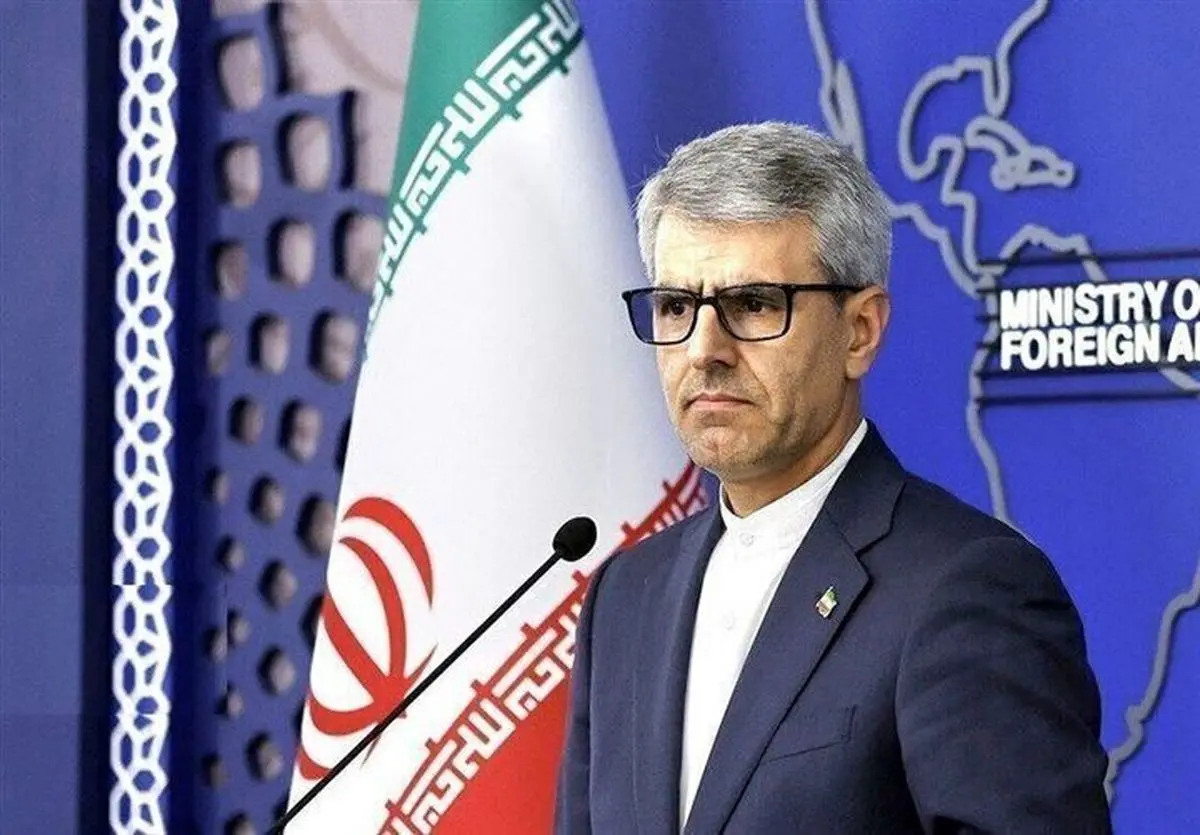SAEDNEWS: The spokesperson for Iran’s Ministry of Foreign Affairs emphasized that Iran is ready to continue negotiations with European countries, but confidence-building must be mutual.

In an interview with Germany’s Süddeutsche Zeitung, Esmaeil Baqaie described European threats to trigger the snapback mechanism as illegal and harmful.
According to Saed News quoting Tasnim, he stressed that Iran is ready to continue negotiations with Europeans, but confidence-building must be reciprocal. Baqaie also criticized the position of the German Chancellor regarding Israeli attacks on Iran, describing it as offensive.
The full interview with Germany’s Süddeutsche Zeitung, conducted on August 17, is as follows:
Reporter: In your view, what is likely to happen in the next two weeks? Will there be further negotiations with Europeans, or is a snapback scenario more likely?
Baqaie: Certainly, we do not consider the snapback legal or reasonable. After ten years of the JCPOA, Resolution 2231 should expire. This is our position. In our view, there is no reason for Iran’s nuclear program to remain on the UN Security Council agenda. Our nuclear program has always been and will remain peaceful, although it has suffered significant damage from Israeli and U.S. attacks on our facilities. IAEA reports confirm that there is no diversion from peaceful purposes in Iran’s nuclear program. If this is the case, why should Iran still be on the Security Council agenda? Therefore, in October, Resolution 2231 should expire.
However, European countries that are parties to the JCPOA are threatening to reinstate the sanctions resolutions. This would mean returning to the pre-2006 situation, which for Iran signifies a wrong approach, because over these years we have made great efforts to negotiate with Europeans and implement the JCPOA to resolve concerns regarding our nuclear program and have sanctions lifted in return. Now the European JCPOA members are telling us that all the work we did over the past ten years is invalid, even though we have made every effort to fulfill our JCPOA commitments.
Although in 2019 we had to reduce some obligations after a year of waiting for Europeans to compensate for the U.S. withdrawal, we had to balance our commitments with our rights under the JCPOA. When the Trump administration left the JCPOA, Europeans came to Iran and said: “Please do not retaliate, wait for us, we will compensate.” But they failed, and we had to take proportionate measures, because no member country can be expected to fulfill commitments without benefiting from its rights. This is exactly what happened with the JCPOA, and we had to revise the way we implemented our commitments. This action was consistent with the text and spirit of the JCPOA, which allows any party harmed by the other’s violations to partially or fully suspend its commitments.
Now, after ten years, European JCPOA members are threatening to reinstate all Security Council resolutions. I think this step would be very harmful. It would remove Europeans from any negotiation process, even though they have played a constructive role as a bridge between Iran and the U.S. since Javier Solana, then Ms. Ashton, then Mogherini, and now Josep Borrell. This is why we were able to reach the JCPOA in 2015. It was not only Iran’s achievement but theirs as well.
Of course, we are dissatisfied with the European reaction to Israeli and U.S. attacks on Iran and expected them to condemn those attacks, as they were unjustifiable and aggressive actions against Iran’s sovereignty and territorial integrity. Moreover, they harmed the NPT and blatantly violated Resolution 2231, which underpins the JCPOA and affirms Iran’s right to peaceful nuclear energy. Therefore, I believe that if Europeans want to appear as credible and relevant negotiation partners, they must reconsider their behavior.

